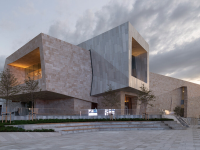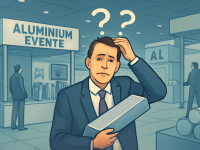Following the trajectory of most emerging markets, Brazil has driven investments to strengthen its national production seeking the meet of its domestic demand needs. The per capita consumption of aluminium products in Brazil, of 7.5 kg per inhabitant, contrasting with the global average of 22.4 kg/inhabitant, also highlights the universe of opportunities to be explored in the pursuit for a greater participation both in the regional and international market.
As the prospects for an exponential increase in the global demand remains positive, uncertainties with the geopolitical scenarios have raised concerns over the risks of potential disruptions in supply chain and led governments to adopt policies seeking to either secure a competitive advantage or the reduction of a country´s dependence on imports.
Meanwhile, the Brazilian aluminium industry has been resiliently preparing itself to play a crucial role in the establishment of a new industrialisation model, supporting the promotion of conscious consumption, the best governance practices within its chain of custody, reviewing productive processes to foster diversity, innovation, circularity and means to contribute to a net-zero economy transition.
A study commissioned by the Brazilian Aluminum Association (ABAL) to support the sector´s understanding of the impacts of the implementation of the Carbon Border Adjustment Mechanism (CBAM) by the European Union has also provided important inputs for the ongoing discussions related to the regulation of carbon market in Brazil.
The results indicate an overall carbon intensity significantly below the world average due to a series of actions undertaken by the national industry in terms of diversification of its energy matrix and use of clean and renewable sources and in achievement of recording recycling rates,
The ongoing pipeline of projects carried out by the Brazilian Aluminium sector include investments in several initiatives ranging from the expansion of bauxite reserves, resumption of curtailed capacity, expansion and construction of new plants, employment of new technologies to improve environmental conservation, reduction of water consumption and greenhouse emissions, diversification of the energy matrix, modernisation and installation of new collection and recycling centers.
While the industry continues to implement measures that will enable the sector to act as a strategic ally for those highly demanding consumers seeking to fulfill its emissions reduction´s commitments, ABAL has also collaborated in debates for the promotion of important regulatory reforms and on the design of a new industrial policy that is centered in leveraging the country´s competitive advantages and in securing a business environment that recognizes and foster investments in verticalisation and value-adding generation.
ABAL has been specially engaged in raising awareness about the challenges that have directly impacted the competitiveness of the industry in recent times, specifically on issues related to the promotion of a fair-trade environment, through the strengthening of the trade remedies measures to assure predictability, correct market imbalances, and curb anti-competitive practices, and ensure isonomic treatment between domestic and imported products.
The recently created Industrial Development Council will be unfolding the details and guidelines of this new industrial policy that have, among other missions, the goal to expand the country´s productive capacity and in securing the supply of critical minerals and strategic materials important for the transition to an energy-efficient and low carbon economy.
The Brazilian aluminium industry is prepared to meet the growing demand for sustainable products with high added value. The country benefits of a series of strategic assets for the strengthening of a base industry. The integration and verticalisation of the productive process assure high performance of chain of custody and have allowed the continuity of the operations and lesser exposure to the externalities experienced in critical moments.
We have crossed a long path of upwards and downwards in recent years and we will continue to look for ways to collaborate and work on a shared vision of development model in which aluminium take an indispensable and strategic role in the promotion of a more sustainable çife and future.














